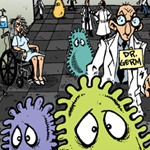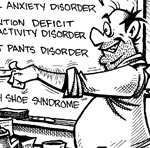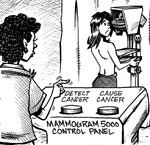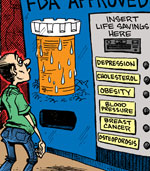Vitamin E and Fertility - The Antioxidant Vitamin That Helps Couples Become Parents
| Share on Facebook | Share on Twitter | Share on Google+ |
First the bad news about vitamin E and sexual health. Vitamin E is not, as some have reported, the long-awaited women's Viagra. It isn't even a natural men's Viagra. Vitamin E has little direct effect on sex life, but it can have a tremendous effect on fertility.
Vitamin E was actually first investigated as the "fertility vitamin." Originally known as "factor X," vitamin E was originally investigated as the missing ingredient in female, and later male, fertility.
But the fact is, just about no one is infertile simply because they are deficient in vitamin E. Vitamin E cannot make up for total destruction of the ovaries or testes. But when men and women have low fertility, rather than no fertility, then taking vitamin E can be an important step on the path to parenthood.
Improving male fertility. Vitamin E helps boost the vitality of sperm.
To perform its mission, the sperm cell has to make an arduous journey from the cervix to the opening of the fallopian tubes to meet the egg. Swimming through the cervical mucus by flexing its flagellum, or "tail," each sperm burns its supply of fructose sugar to power the trip.
Burning fructose creates a lot of free radicals. Many sperm "burn out" on the trip from the cervix to the fallopian tubes simply because they don't have enough antioxidants. That's where vitamin E comes in.
Scientists at the University of Montreal in Canada gave men who had low sperm counts vitamin
E and selenium supplements for four months. Both vitamin E and selenium are potent antioxidants. At the end of four months of daily supplementation, the scientists observed that the sperm, while not more numerous, had more "swimming ability" and far more were able to maintain their characteristic shape, rather than breaking down under oxidative stress. When the men went off the supplements, the sperm lost their vitality.
Studies that tested the use of vitamin E alone as a treatment for low male fertility typically used 200 to 600 IU per day. A study in Israel found that having the male partner take 200 IU of vitamin E (and no other supplements) per day increased pregnancy rates from 15 per cent to 29 per cent. Vitamin E isn't a treatment for men whose chances of fatherhood are 0 per cent, but it is a tremendous benefit when the problem is low fertility, not no fertility at all. (Visit vitamin E benefits for men for more information )
Improving health of pregnant women and their babies. Men make literally trillions of sperm in the lifetimes. Women, however, only have about 450 eggs. For that reason, no medical studies have ever been conducted on the direct results of vitamin E on the viability of a woman's eggs or on women's rates of conception. However, scientists do know that vitamin E is very important to healthy babies, especially babies born prematurely.
The reason antioxidants are so important to a baby's health is that the fluids of the uterus are only about 4 per cent oxygen, while the atmosphere is about 21 per cent oxygen. A newborn undergoes a powerful shock on drawing his or her first breath. Suddenly the baby's body is flooded with oxygen, and the child has to already have antioxidants to prevent damage-especially to the retina. The only way a baby can build up its supplies of antioxidants is to get them from the mother. That's why vitamin E is an important part of prenatal care.
Mothers to be don't need to take megadoses of vitamin E. The 20 mg a day of natural vitamin E found in a supplement containing Tocomin ® is enough. If a woman is going to take a vitamin E supplement, only 100 IU a day is needed, and alpha-tocopheryl-succinate is best. This form of vitamin E goes to work quickly, and it also is especially well absorbed in the placenta and breasts, where it is needed most.
Vitamin E is important for both men and women seeking to become parents. Men need a lot of vitamin E. Women just need a little. But both men and women are far more likely to become parents of healthy children with the help of this antioxidant vitamin.
Selected References:
Aitken RJ. The role of free oxygen radicals and sperm production. Int Jour Androl 1989; 12: 95-97.
Zini A et al. Reactive oxygen species in semen of infertile patients. Int Jour Androl 1993; 16: 183-88.
-
Skin CareMen Skin Care
-
Free ResourcesFree eBooks
-
The important thing is this: to be able, at any moment, to sacrifice what we are for what we could become.Maharishi Mahesh Yogi
-
Featured Health Supplement
 The restoration and maintenance of normal organ and brain function and a strong immune system is the key to vibrant health and in
avoiding premature-aging!
The restoration and maintenance of normal organ and brain function and a strong immune system is the key to vibrant health and in
avoiding premature-aging!
-



















